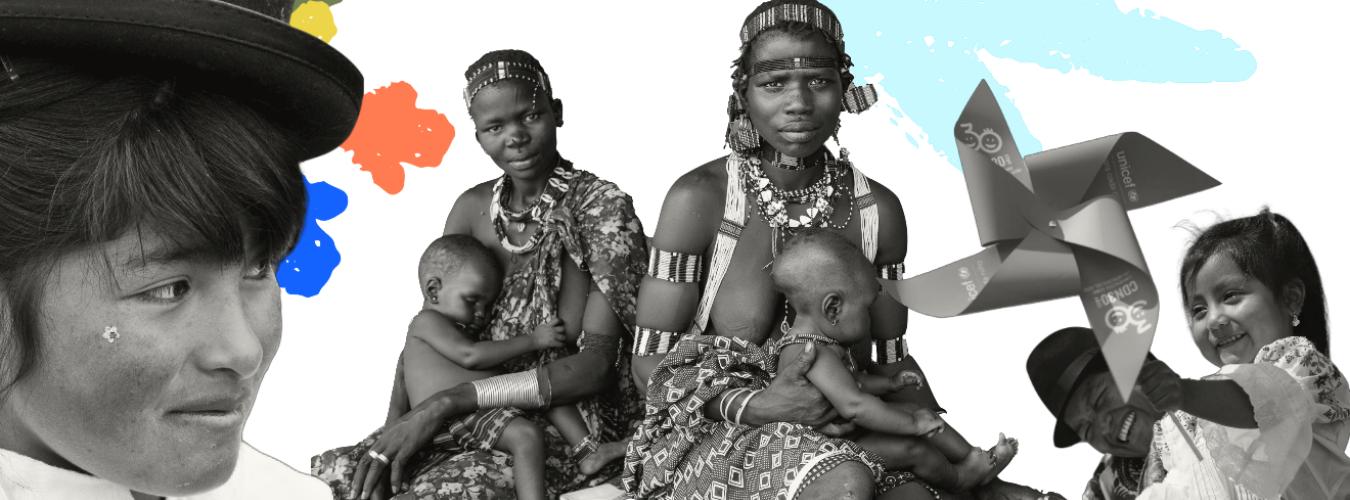International Day of the World’s Indigenous Peoples 9 August

There are over 476 million indigenous peoples living in 90 countries across the world, accounting for 6.2 per cent of the global population. Indigenous peoples are the holders of a vast diversity of unique cultures, traditions, languages and knowledge systems. They have a special relationship with their lands and hold diverse concepts of development based on their own worldviews and priorities.
Although numerous indigenous peoples worldwide are self-governing and some have been successful in establishing autonomy in varying forms, many indigenous peoples still come under the ultimate authority of central governments who exercise control over their lands, territories and resources. Despite that reality, indigenous peoples have demonstrated extraordinary examples of good governance, ranging from the Haudenosaunee to the existing Sámi parliaments in Finland, Sweden, and Norway.
The COVID-19 pandemic has exposed and exacerbated many existing inequalities, disproportionately affecting populations all over the world that were already suffering from poverty, illness, discrimination, institutional instability or financial insecurity. From the perspective of indigenous peoples, the contrast is even starker. In many of our societies, the social contract, at the very least, needs some revision.

2021 Virtual Commemoration
9 August 9:00 a.m. – 11:00 a.m. EDT
Permanent Forum on Indigenous Issues will organize a virtual commemoration for speakers to disucss redesigning a new social contract for indigenous peoples, where their own forms of governance and ways of life must be respected and based on their free, prior and informed consent.
What is a social contract?
This August 9, International Day of Indigenous Peoples, we must demand indigenous peoples’ inclusion, participation and approval in the constitution of a system with social and economic benefits for all.
That is why the 2021 theme is ““Leaving no one behind: Indigenous peoples and the call for a new social contract.” But, what does it mean?
A social contract is an unwritten agreement that societies make to cooperate for social and economic benefits. In many countries, where indigenous peoples were driven from their lands, their cultures and languages denigrated and their people marginalized from political and economic activities, they were never included in the social contract to begin with. The social contract was made among the dominant populations.
Over recent years and decades, various societies have sought to address this, including through apologies, truth and reconciliation efforts, legislative reforms, as well as constitutional reforms, while at the international level, these efforts have included the adoption of the United Nations Declaration on the Rights of Indigenous Peoples and advisory bodies such as the Permanent Forum on Indigenous Issues.
Despite the existence of international instruments to respond these inequalities, not all are embarked on the collective journey to ensure that no one is left behind, including indigenous peoples. Therefore, the building and redesigning of a new social contract as an expression of cooperation for social interest and common good for humanity and nature, is needed.
The new social contract must be based on genuine participation and partnership that fosters equal opportunities and respects the rights, dignity and freedoms of all. Indigenous peoples’ right to participate in decision-making is a key component in achieving reconciliation between indigenous peoples and States.
Did you know?
- More than 86% of indigenous peoples globally work in the informal economy, compared to 66% for their non-indigenous counterparts
- Indigenous peoples are nearly three times as likely to be living in extreme poverty compared to their non-indigenous counterparts.
- Globally, 47% of all indigenous peoples in employment have no education, compared to 17% of their non-indigenous counterparts. This gap is even wider for women.
40,000 year-old hunter-gatherer tribe gains land rights in Tanzania
Why indigenous peoples are at a disadvantage in this pandemic
Related links









Leave a Reply
You must be logged in to post a comment.